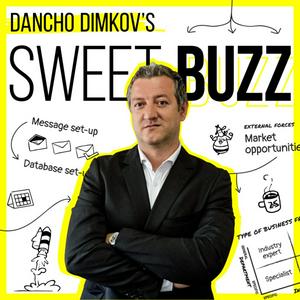#265 content re-purposing (part 2)
In this episode, I continue discussing the lecture I’m preparing for the Faculty of Economics. After sharing the idea of documenting, not creating content, I move on to the second big point: content repurposing. The idea is simple: when you create content, make sure you can recycle and reuse it across different formats and platforms. I explain how you can take a video series and repurpose it into social media clips, podcasts, blog posts, eBooks, and even a full book.
Repurposing content unlocks new audiences and platforms, helping you get the most out of your efforts. I share real examples of how I’ve done this myself, creating months of content from a single event or video series. This strategy not only saves time but also amplifies your reach. I’m excited to share this approach with the students, and I think it will be a game-changer for anyone trying to maximize their content.
Transcription:
Hello, everybody, it’s me again! Continuing with the second part of my lecture preparation for the Faculty of Economics. In the previous episode, I talked about documenting, not creating as a content strategy, but what’s point number two? It’s all about content repurposing. If you’re creating content that you can’t recycle or reuse, then you’re doing it wrong. Content should be long-term, and repurposing it is key to getting more out of what you’ve already made.
Think about it. You have a topic—whether it’s how to lose weight, how to win at sales, or how to become a financial accountant. Now, identify the five or seven key things that people need to know about that topic. Let’s take my B2B outreach process as an example: I have six core steps that I could break down into a limited video series. The first video could be an introduction, followed by one video for each step. All of a sudden, you have a complete six-part video series.
Once you have that video series, there’s so much you can do with it. You can upload it to YouTube, share the links on social media, or take excerpts to create reels for TikTok, Facebook, and Instagram. If you have three hours of video content, you can easily repurpose that into so many different formats. But why stop there? You can extract the audio and turn it into a podcast series, reaching people who prefer listening over watching. Now you’re on platforms like Spotify, Apple Podcasts, and Google Play.
Next step? Transcribe the podcast and create blog posts. A 30-minute conversation can easily give you thousands of words, and those can be broken down into multiple blog posts. One topic could lead to three or five subtopics, and boom—you’ve got 25 blog posts from a single piece of content. These blog posts can be shared on your website, LinkedIn, or even Medium to attract a different audience. But why stop there? Merge these blog posts into a small eBook or even combine several eBooks into a full-fledged book.
This is the magic of content repurposing. By starting with a single video series, you’ve now expanded to podcasts, blog posts, eBooks, and social media content. All of a sudden, you’ve unlocked new platforms, reached new audiences, and maximized the impact of your content. I’ve done this myself, generating months of content from a single event like a summit. From announcing the speakers to sharing the event itself, the content keeps flowing for months afterward.
So, that’s the second lesson I’ll be sharing with the students: content repurposing. Figure out the main strategy behind your content, and then use social media to spread it across different platforms. It’s a strategy that works for both companies and individuals, and it’s something I think will be incredibly useful for students. Wish me luck!

